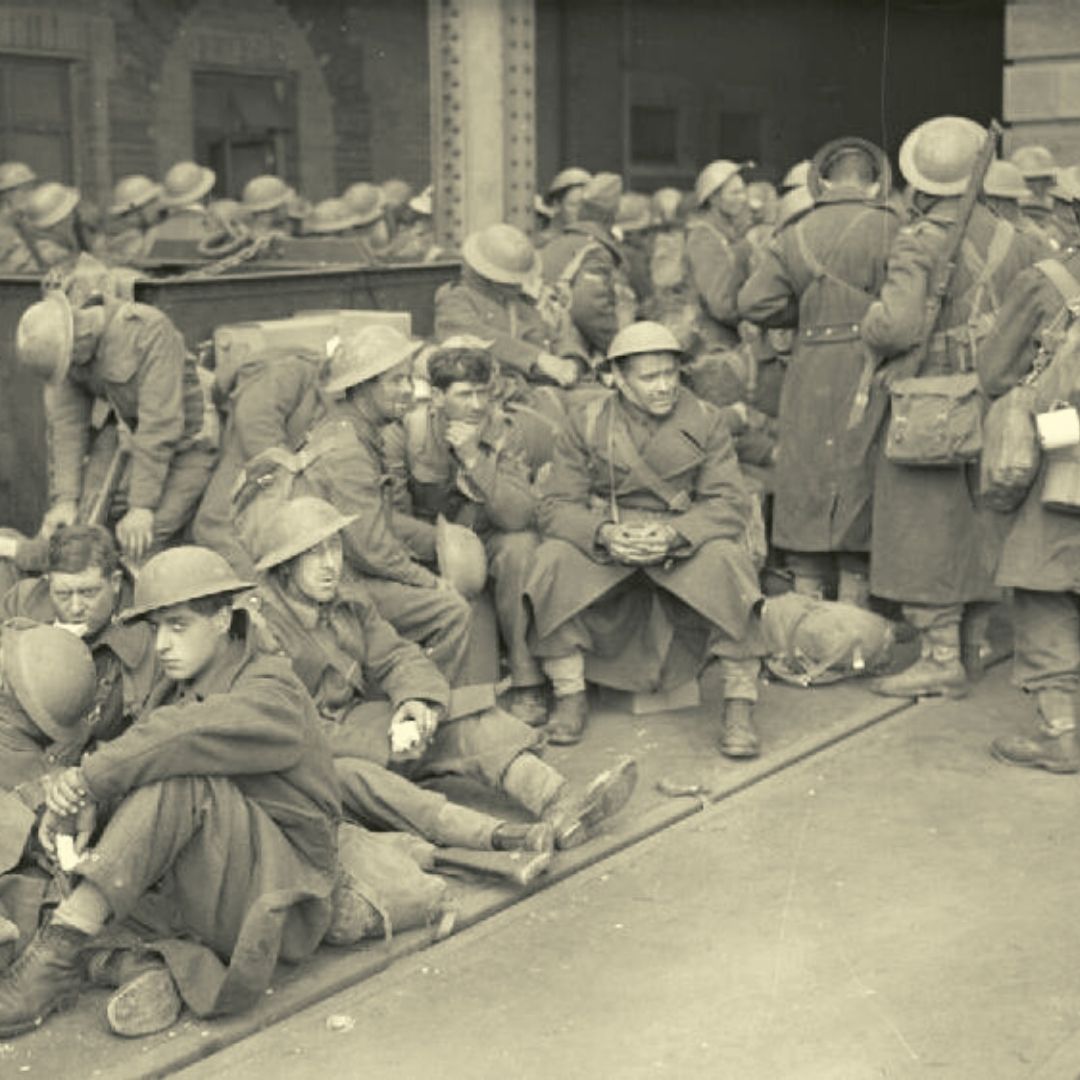
Image Credits: Wikipedia
Know About The Forgotten Indian Heroes of 'Dunkirk' Who Were Lost In The Chapters Of History
Writer: Tashafi Nazir
For most people, journalism sounds hectic and chaotic. For her, it's a passion she has been chasing for years. With an extensive media background, Tashafi believes in putting efforts on presenting a simple incident in the most interesting way.
India, 19 Sep 2021 6:26 AM GMT
Editor : Madhusree Goswami |
A mountain girl trying to make it big in the city. She loves to travel and explore and hence keen on doing on-ground stories. Giving the crux of the matter through her editing skills is her way to pay back the journalism its due credit.
Creatives : Tashafi Nazir
For most people, journalism sounds hectic and chaotic. For her, it's a passion she has been chasing for years. With an extensive media background, Tashafi believes in putting efforts on presenting a simple incident in the most interesting way.
According to British historian Ghee Bowman, the story of these soldiers and their comrades is one of the great untold stories of World War 2.
On May 28, 1940, thousands of British soldiers were waiting for their evacuation and therefore lined up on the beaches at the French port city of Dunkirk. Among them was Major Mohammed Akbar Khan, Royal Indian Army Service Corps and 300 Indian Muslims from Punjab, belonging to Force K6.
They were the only units of the Indian Army to be posted ever to the UK, and most of them spent the war in Britain. But their bravery and determination are primarily forgotten in Britain as well as South Asia. Reportedly, neither Christopher Nolan's 2017 film 'Dunkirk' nor other books or studies on World War 2 acknowledged these soldiers headed by Major Akbar Khan-one of the senior officials of the Indian Army.
British historian Ghee Bowman, working on a project on multicultural history, came to know about three pictures from 1940's England showing Indian soldiers with mules. Later, he found the war service diary of the 25th Animal Transport Company-document that talked about the story of 300 Indian soldiers who came from Punjab in 1939, moved to Bombay, sailed through the sea, arrived on the beaches in Dunkirk and were among the 3 lakh soldiers who had escaped Nazis during World War 2. Bowman had confessed that he started crying while reading it, The Times of India reported.
Forgotten Indian Soldiers
After the war, Akbar Khan returned to India and was promoted as a senior officer in the new Pakistan army during the Partition in August 1947. He was made a military aide to Muhammad Ali Jinnah and wrote more than 40 books. He had also met Chairman Mao in China.
According to Bowman, Khan was one of the many Indian soldiers who was evacuated from Dunkirk and forgotten completely. The soldiers used to wear khaki, tin helmets, turbans and were issued no weapons when they came from Punjab before landing in France.
During the harsh winters, mules were required in France for carrying supplies as a replacement to motorised vehicles. As the rest lacked 'animal-handling skills', the Indian soldiers were deployed for the purpose. Almost 2.5 million Commonwealth servicemen from South Asia joined the British military services, but what happened to the Indian troops is still not clear.
"The story of these soldiers and their comrades is one of the great untold stories of the war," said Bowman, author, most recently of The Indian Contingent: The Forgotten Muslim Soldiers of the Battle of Dunkirk.
Chaudry Wali Mohammad and his contingent reached Dunkirk on May 23. He recounted that German planes were like terrible birds flying over them and firing.
"We didn't think we would come out of Dunkirk alive… Everything was on fire. The whole of Dunkirk was alight. There were so many fires it was like daylight," he recalled, as quoted by BBC.
He said that the ship they were supposed to travel had sunk and they had to eventually run back to the woods. After two days, he and his soldiers were made to evacuate.
Similarly, Jemadar Maula Dad Khan was known for his immense courage, coolness and decision making. He protected his army and animals when they were shelled from the ground and strafed from the air by the enemy.
The soldiers lived most of their lives in a village in northern France. Even in the chilling winter, they used to exercise and feed their mules. They performed "weekly gymkhanas where they performed tricks on mule back along with the local villagers and danced bhangra (a Punjabi dance form). However, things changed within two weeks when the Germans attacked France, and the soldiers became part of a chaotic retreat to the coast.
On reaching Dover, Britishers welcomed them in their homes and hearts. Their lives took a drastic turn after travelling from their country to villages and towns across Britain and France until they returned home after the end of the war. The Germans captured few of them and were kept as prisoners in war camps of France, Germany, Poland and Italy.
According to Bowman, the reason about the soldiers being forgotten is that they were primarily involved in the business of supply rather than being as frontline warriors. Such kind of soldiers are barely remembered. "Public memory and public forgetting are fascinating processes, it's hard to put your finger on all the reasons," he said.
Also Read: ''Misleading'' Signages On Toilets For Transgender Persons Not Acceptable: NHRC To Delhi Metro
 All section
All section














